
Acta Scientiae Veterinariae
Scope & Guideline
Innovating veterinary practices through open access research.
Introduction
Aims and Scopes
- Veterinary Clinical Research:
Focuses on clinical studies that evaluate treatments, diagnostic methodologies, and management protocols across a range of animal species, including pets, livestock, and wildlife. - Animal Health and Disease Management:
Covers research on infectious diseases, zoonotic diseases, and their epidemiology, with an emphasis on understanding disease mechanisms and improving health outcomes in animal populations. - Comparative Medicine and Surgery:
Explores surgical techniques, diagnostic imaging, and therapeutic interventions applicable to both domestic and exotic animals, promoting knowledge transfer between species. - Reproductive Biology and Endocrinology:
Investigates reproductive health, hormonal profiles, and fertility issues, particularly in livestock and companion animals, focusing on optimizing breeding practices. - Food Safety and Veterinary Public Health:
Addresses the implications of animal health on food safety, including studies on antimicrobial resistance, foodborne pathogens, and veterinary epidemiology. - Veterinary Pathology and Toxicology:
Examines pathological findings in animals and the effects of various toxins and pathogens, contributing to the understanding of animal diseases and their management.
Trending and Emerging
- Antimicrobial Resistance and Stewardship:
An increasing number of studies are addressing antimicrobial resistance in veterinary medicine, highlighting the importance of responsible antibiotic use and the development of alternative therapies. - Telemedicine and Remote Veterinary Care:
The rise of telemedicine in veterinary practice has gained attention, with research focusing on its effectiveness, implementation challenges, and regulatory considerations. - One Health Approach:
Research that integrates human, animal, and environmental health is becoming more prominent, reflecting the recognition of interconnected health issues and the need for collaborative solutions. - Innovative Surgical Techniques and Technologies:
There is a growing emphasis on advanced surgical methods, minimally invasive procedures, and the application of new technologies such as robotics and tele-surgery in veterinary practice. - Nutritional Medicine and Nutraceuticals:
Studies exploring the role of nutrition and dietary supplements in preventing and managing health issues in various animal species are gaining momentum, addressing the increasing focus on holistic animal care.
Declining or Waning
- Traditional Agricultural Practices:
Research focusing on conventional farming methods and practices is declining as the field shifts towards sustainable and innovative agricultural techniques, particularly in response to increasing environmental concerns. - Basic Anatomy and Morphology Studies:
There has been a noticeable decrease in studies strictly focused on basic anatomical and morphological descriptions, as veterinary research increasingly emphasizes clinical applications and translational research. - Veterinary Education and Pedagogy:
Research centered on veterinary education methodologies and curricula has waned, possibly due to the growing focus on practical and clinical competencies in veterinary training.
Similar Journals
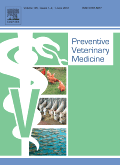
PREVENTIVE VETERINARY MEDICINE
Empowering veterinarians with cutting-edge research for disease prevention.PREVENTIVE VETERINARY MEDICINE, published by Elsevier, is a premier academic journal dedicated to advancing the field of veterinary science, with a particular focus on the prevention of diseases in food animals. With an impressive impact factor that reflects its stature in the academic community, this journal is categorized in the Q1 quartile across both Animal Science and Zoology and Food Animals categories, underscoring its significance in agricultural and biological sciences. Established in 1982, the journal is known for its rigorous peer-reviewed articles and research insights that contribute significantly to veterinary epidemiology, herd health management, and disease prevention strategies, fostering a closer connection between veterinary practitioners and researchers. By offering a platform for high-quality research that enhances animal health and productivity, PREVENTIVE VETERINARY MEDICINE serves as an essential resource for researchers, veterinarians, and students aiming to stay at the forefront of veterinary innovations and practices.

Exploratory Animal and Medical Research
Advancing veterinary science through open collaboration.Exploratory Animal and Medical Research is a vital platform for progressive research in the fields of veterinary medicine, ecology, and public health, published by the West Bengal Veterinary Association. Since its inception in 2011 as an Open Access journal, it has enabled the dissemination of critical knowledge without barriers, thereby fostering innovation and collaboration among researchers globally. With an ISSN of 2277-470X and an E-ISSN of 2319-247X, the journal has gained significant traction, as reflected in its Scopus ranking, where it stands at Rank #110/194 for Veterinary General Veterinary and Rank #242/398 in Medicine (miscellaneous), highlighting its relevance in the scientific community. The journal covers a wide scope that includes veterinary medicine, health, toxicology, and environmental studies, having earned category quartiles in 2023 that range from Q3 to Q4 across multiple disciplines. Based in India, it serves as an essential conduit for the latest research findings, making a considerable impact on both local and global scales.

AUSTRAL JOURNAL OF VETERINARY SCIENCES
Fostering Excellence in Veterinary ScholarshipAUSTRAL JOURNAL OF VETERINARY SCIENCES is a prominent platform for innovative research in the field of veterinary science, published by UNIV AUSTRAL CHILE, FAC CIENCIAS VETERINARIAS. This journal, bearing the ISSN 0719-8000 and E-ISSN 0719-8132, serves as a vital resource for researchers, veterinarians, and students interested in advancing their knowledge in veterinary practices and animal health. With its influence reflected in its Q3 category ranking in the Veterinary (miscellaneous) field, and its Scopus rank of #95 out of 194, the journal highlights a robust commitment to disseminating valuable findings and insights. Between the years 2017 to 2024, it aims to provide open access to significant advancements and discussions in veterinary science, ensuring that vital research is accessible to a global audience. Located in Valdivia, Chile, the journal emphasizes its role in enhancing veterinary scholarship and fostering professional development within the community.
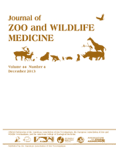
JOURNAL OF ZOO AND WILDLIFE MEDICINE
Fostering collaboration for a healthier planet's wildlife.JOURNAL OF ZOO AND WILDLIFE MEDICINE, published by the American Association of Zoo Veterinarians, serves as a pivotal resource in the field of veterinary science, focusing specifically on the health and well-being of zoo and wildlife species. With an ISSN of 1042-7260 and an E-ISSN of 1937-2825, this journal is recognized for its significant contributions to animal science and has been categorized in the second quartile in both Animal Science and Zoology, as well as Veterinary disciplines, according to the latest rankings. It holds a respectable position within Scopus, being ranked #91 in General Veterinary and #290 in Animal Science and Zoology. While the journal operates on a subscription basis, its impactful research articles have been invaluable for clinicians, researchers, and students alike, providing crucial insights that advance wildlife conservation, veterinary practices, and animal health care from 1993 to the present. With a global reach and a targeted focus on both theoretical and practical applications, JOURNAL OF ZOO AND WILDLIFE MEDICINE is instrumental in fostering collaboration among professionals dedicated to the study and care of wild animal populations.
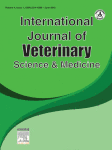
International Journal of Veterinary Science and Medicine
Fostering collaboration for the advancement of animal care.Welcome to the International Journal of Veterinary Science and Medicine, a leading platform for the dissemination of innovative research in the field of veterinary science. Published by TAYLOR & FRANCIS LTD, this esteemed journal has maintained an Open Access policy since 2013, ensuring widespread accessibility and engagement with cutting-edge veterinary studies. With an impressive impact factor and a Category Quartile ranking of Q1 in Veterinary (miscellaneous) as of 2023, it stands out as one of the top journals in its field, ranking #16 out of 194 in the Scopus Veterinary category, placing it in the 92nd percentile of academic publications. The journal encourages submissions of high-quality research and articles that contribute to advancements in veterinary medicine, ranging from clinical studies to public health implications. Located in the United Kingdom, the journal aims to foster collaboration and communication among veterinary professionals, researchers, and students, making it an indispensable resource for anyone involved in this vital field.

BERLINER UND MUNCHENER TIERARZTLICHE WOCHENSCHRIFT
Your Gateway to Veterinary Insights and ResearchBERLINER UND MUNCHENER TIERARZTLICHE WOCHENSCHRIFT is an esteemed journal in the fields of Veterinary Science and Medicine, published by SCHLUETERSCHE VERLAGSGESELLSCHAFT MBH & CO KG. Since its inception in 1946, this journal has served as a vital platform for advancing knowledge and research in veterinary medicine within Germany and beyond. With a current impact factor that places it in the Q4 category in both Medicine and Veterinary, it continues to provide significant insights for professionals, researchers, and students engaged in the veterinary community. Although it is not an Open Access journal, its rich content contributes to the foundational literature of the field, making it an essential reference. Researchers looking to publish their findings or keep informed on the latest advancements in veterinary and medical practices will find this journal an invaluable resource. It is headquartered in Hannover, Germany, and serves as a testament to the ongoing dedication to veterinary research since the mid-20th century.

CANADIAN JOURNAL OF VETERINARY RESEARCH-REVUE CANADIENNE DE RECHERCHE VETERINAIRE
Empowering Veterinary Professionals Through Rigorous ResearchCanadian Journal of Veterinary Research - Revue Canadienne de Recherche Vétérinaire is a leading publication in the veterinary science community, published by the Canadian Veterinary Medical Association. Established in 1986, the journal serves as a crucial resource for researchers and practitioners alike, covering a broad spectrum of topics pertinent to veterinary medicine and animal health. With a current impact factor placing it in Q2 in the Veterinary (miscellaneous) category, it holds a rank of #85 out of 194 in Scopus for general veterinary research, demonstrating its influence and importance within the field. While the journal is not open access, it remains committed to the dissemination of high-quality research that fosters advancements in veterinary practice and education. Based in Ottawa, Canada, it strives to connect the international community of veterinary researchers and professionals through rigorous peer-reviewed articles that advance knowledge and methodologies in veterinary science.

Kleintierpraxis
Bridging research and practice in small animal medicine.Kleintierpraxis is a prominent journal dedicated to the field of small animal veterinary science, published by M H SCHAPER GMBH CO KG in Germany. With an ISSN of 0023-2076, the journal aims to disseminate cutting-edge research, clinical findings, and advancements in veterinary practices affecting small animals. Although it is categorized within the Q4 quartile for Small Animals in 2023 and holds a Scopus rank of 20 out of 20, its role in providing valuable insights to practitioners, researchers, and students in veterinary medicine cannot be underestimated. The journal covers a wide range of topics pertinent to veterinary care, diagnostics, and treatment methodologies, offering an essential resource for understanding the complexities of small animal health. While currently not open access, Kleintierpraxis continues to be a vital contribution to the veterinary literature landscape from 1996 through 2024, fostering professional development and knowledge within the community.
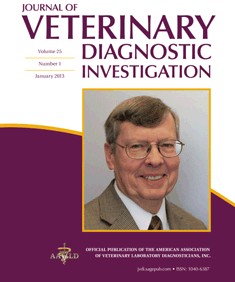
JOURNAL OF VETERINARY DIAGNOSTIC INVESTIGATION
Advancing veterinary diagnostics through innovative research.The JOURNAL OF VETERINARY DIAGNOSTIC INVESTIGATION, published by SAGE PUBLICATIONS INC, stands as a pivotal resource in the field of veterinary medicine, focusing on the latest advancements in diagnostic methodologies and their application in animal health. With an impressive impact factor and ranked in the Q1 category of Veterinary (miscellaneous) for 2023, this journal ensures the dissemination of high-quality research that is critical for veterinarians, researchers, and students alike. Established in 1989 and set to continue through 2024, it encompasses a broad spectrum of topics, vital for professionals committed to enhancing veterinary diagnostics. The journal's rigorous peer-review process guarantees that only the most innovative and thorough research contributions reach its audience, fostering an environment of academic excellence and knowledge transfer in the veterinary diagnostic field.
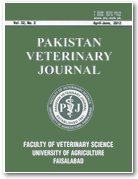
PAKISTAN VETERINARY JOURNAL
Connecting global research to local practices.Pakistan Veterinary Journal (ISSN: 0253-8318, E-ISSN: 2074-7764) is a leading peer-reviewed academic journal published by the University of Agriculture, Faculty of Veterinary Science, situated in Faisalabad, Pakistan. Since its inception, the journal has embraced an Open Access policy, facilitating the dissemination of vital research findings to a global audience and enhancing the visibility of veterinary science. With an impressive Q1 ranking in the veterinary miscellaneous category, the journal ranks #27 out of 194 in the veterinary general field according to Scopus, placing it in the top 14% of the discipline. The scope of the journal encompasses a wide array of topics relevant to veterinary medicine, ensuring that it serves as an essential resource for researchers, professionals, and students alike. By providing a platform for high-quality research from 2009 to 2024, the Pakistan Veterinary Journal continues to play a pivotal role in advancing veterinary science, promoting collaboration among scholars, and addressing contemporary challenges in animal health and welfare.